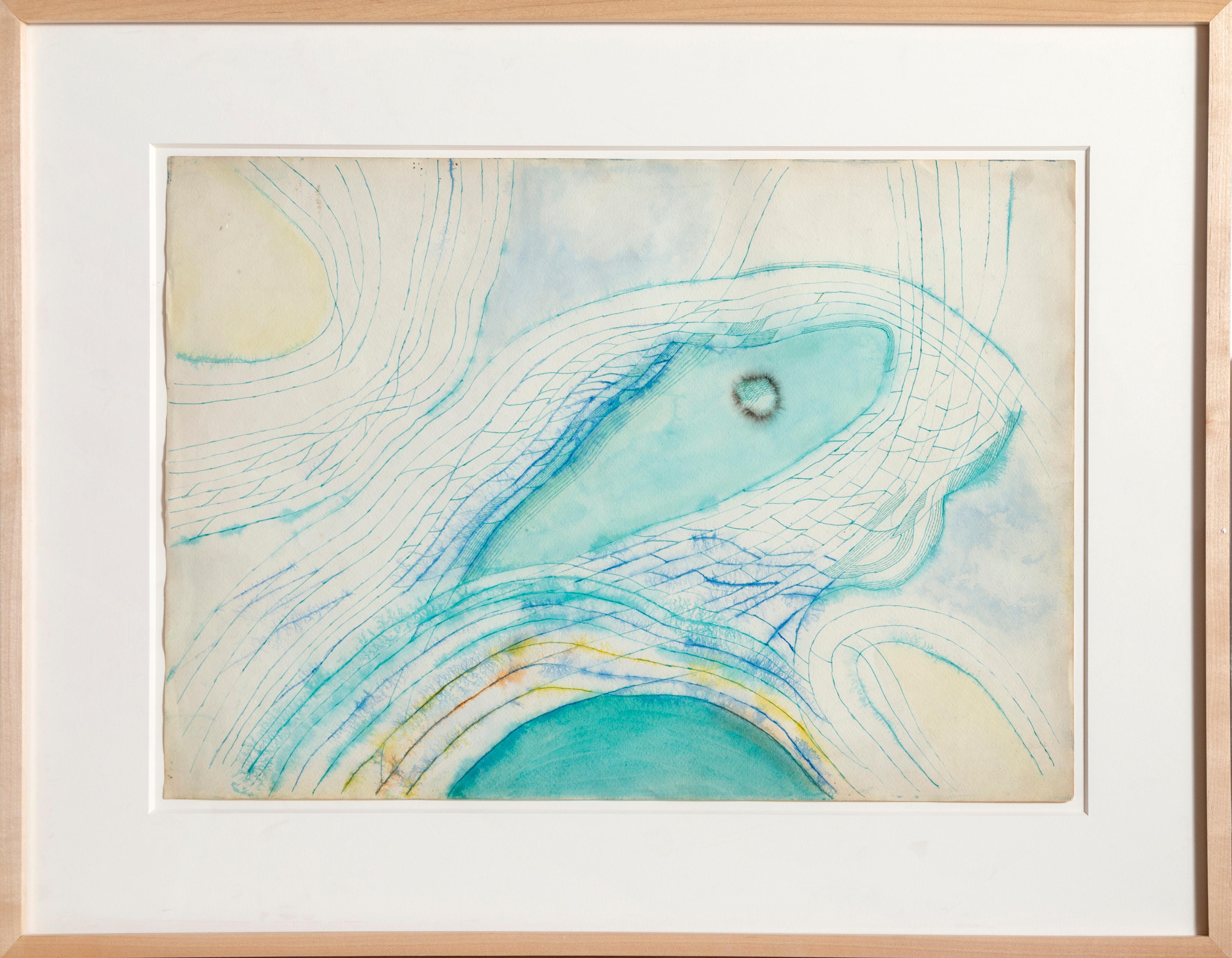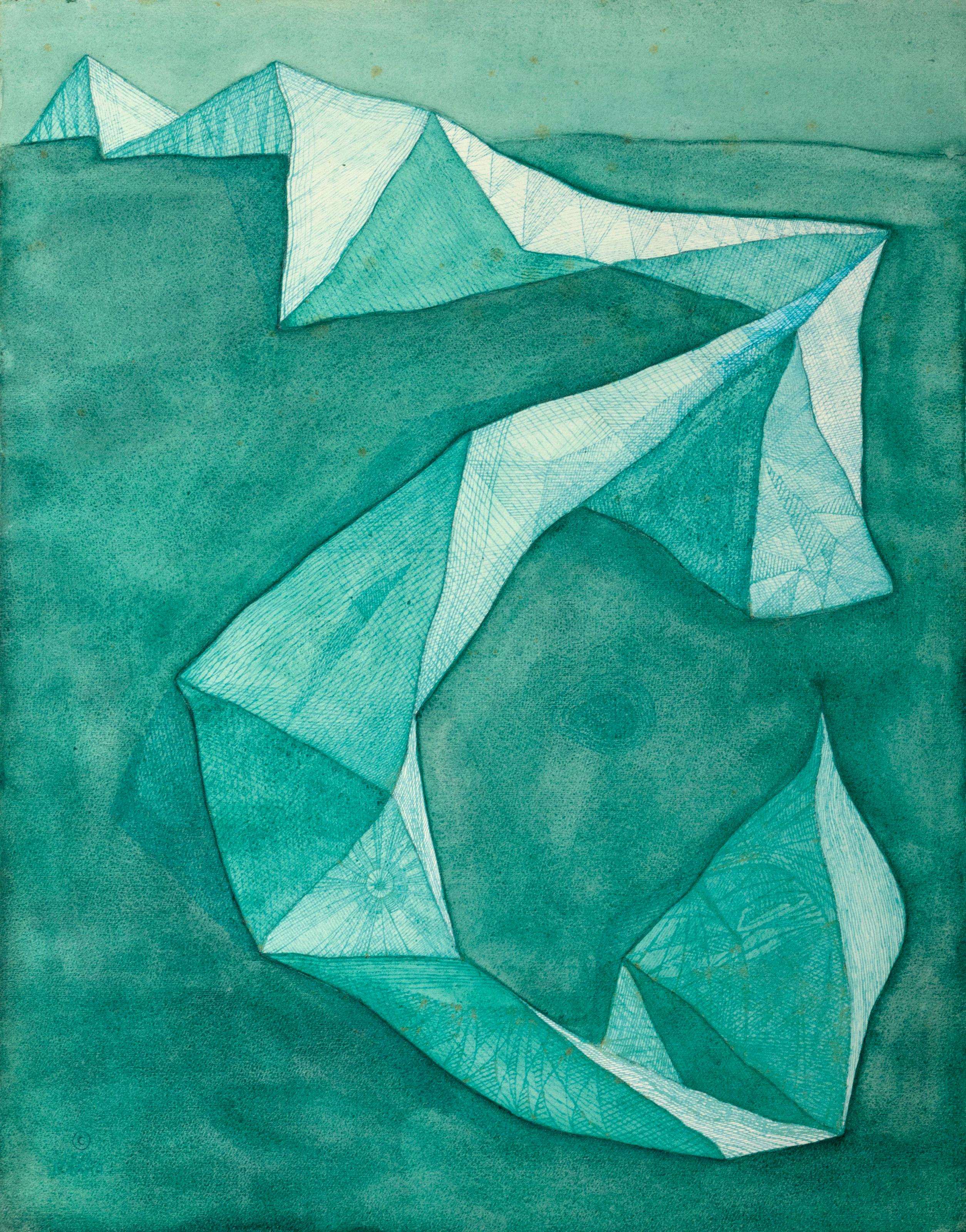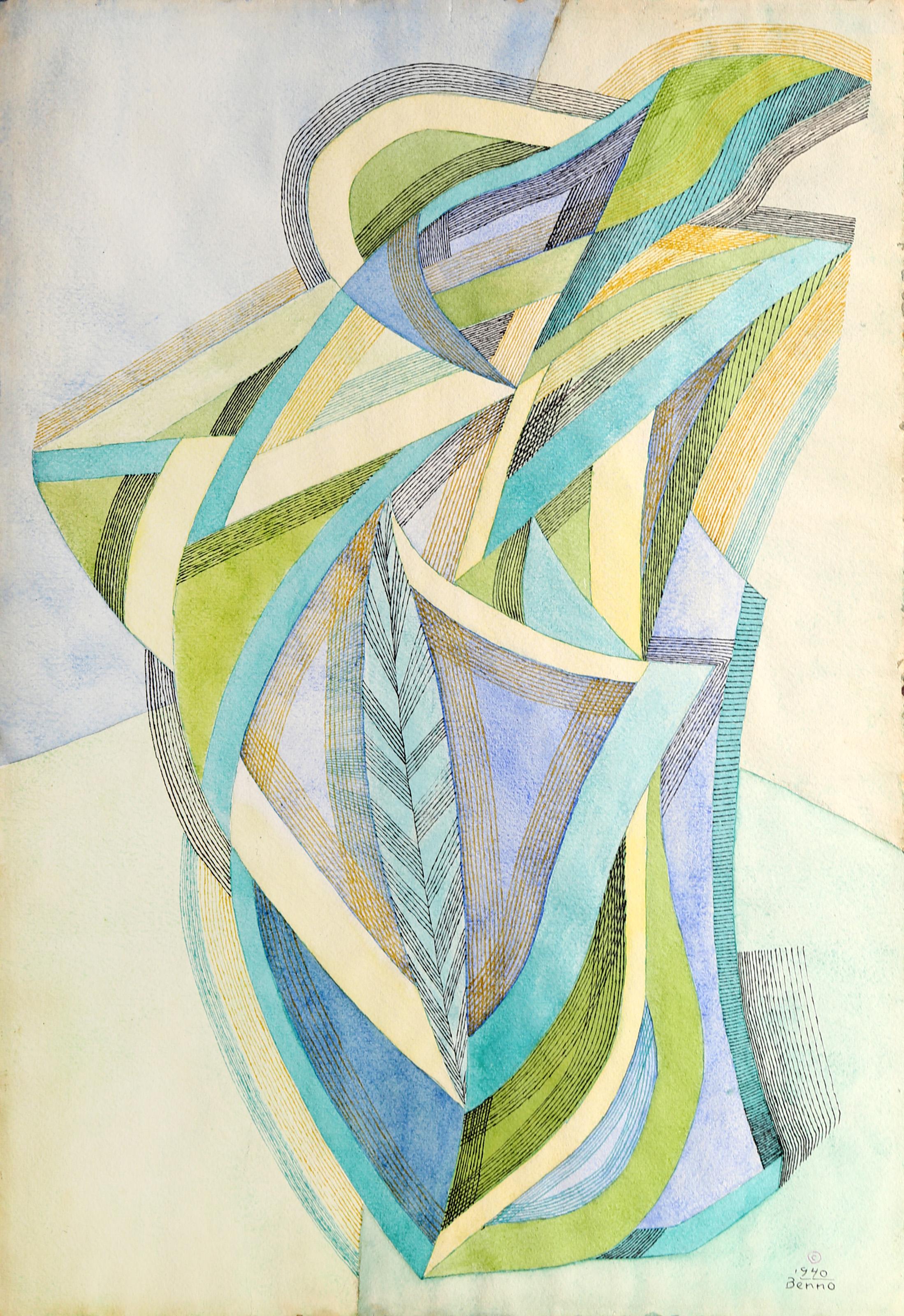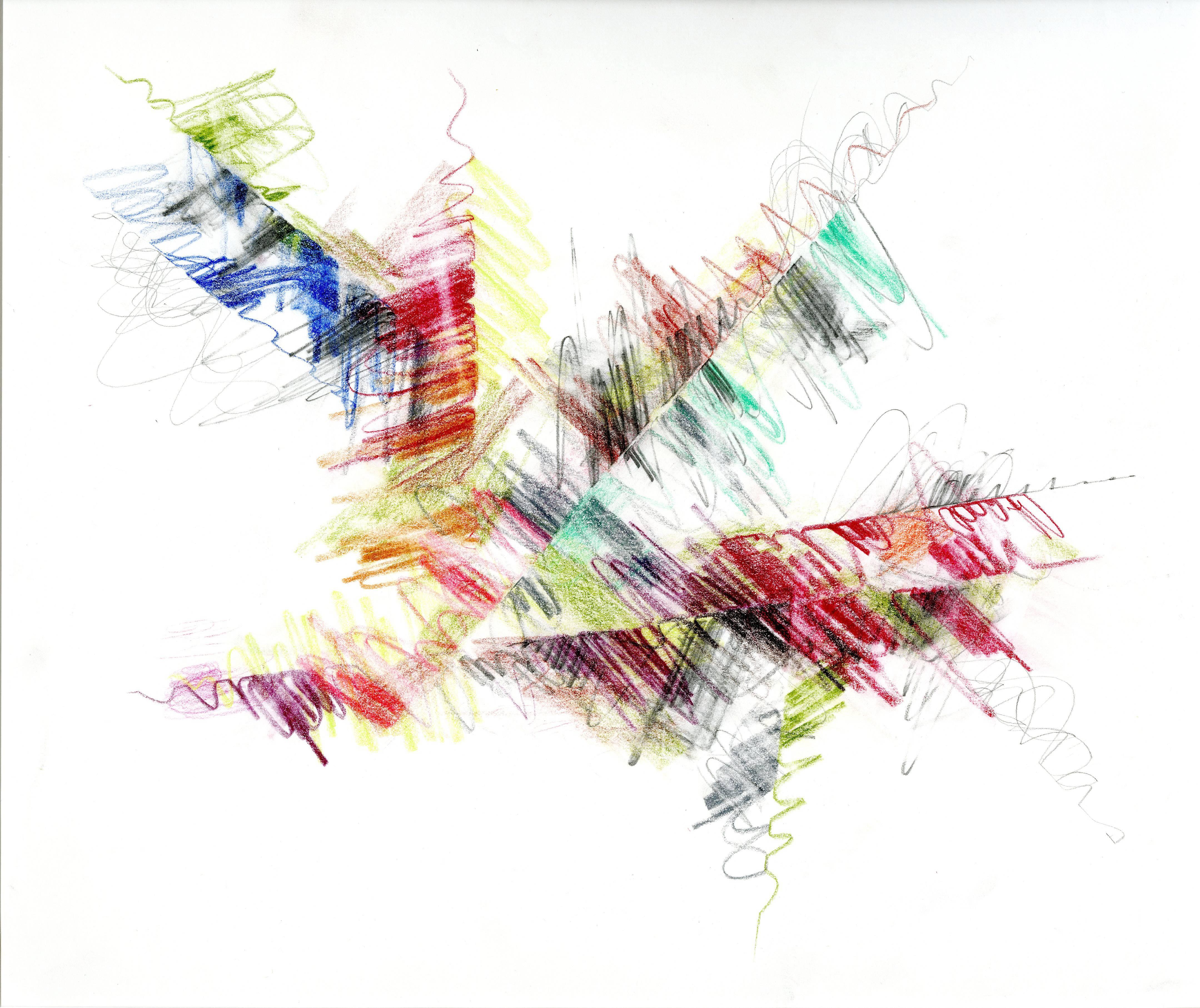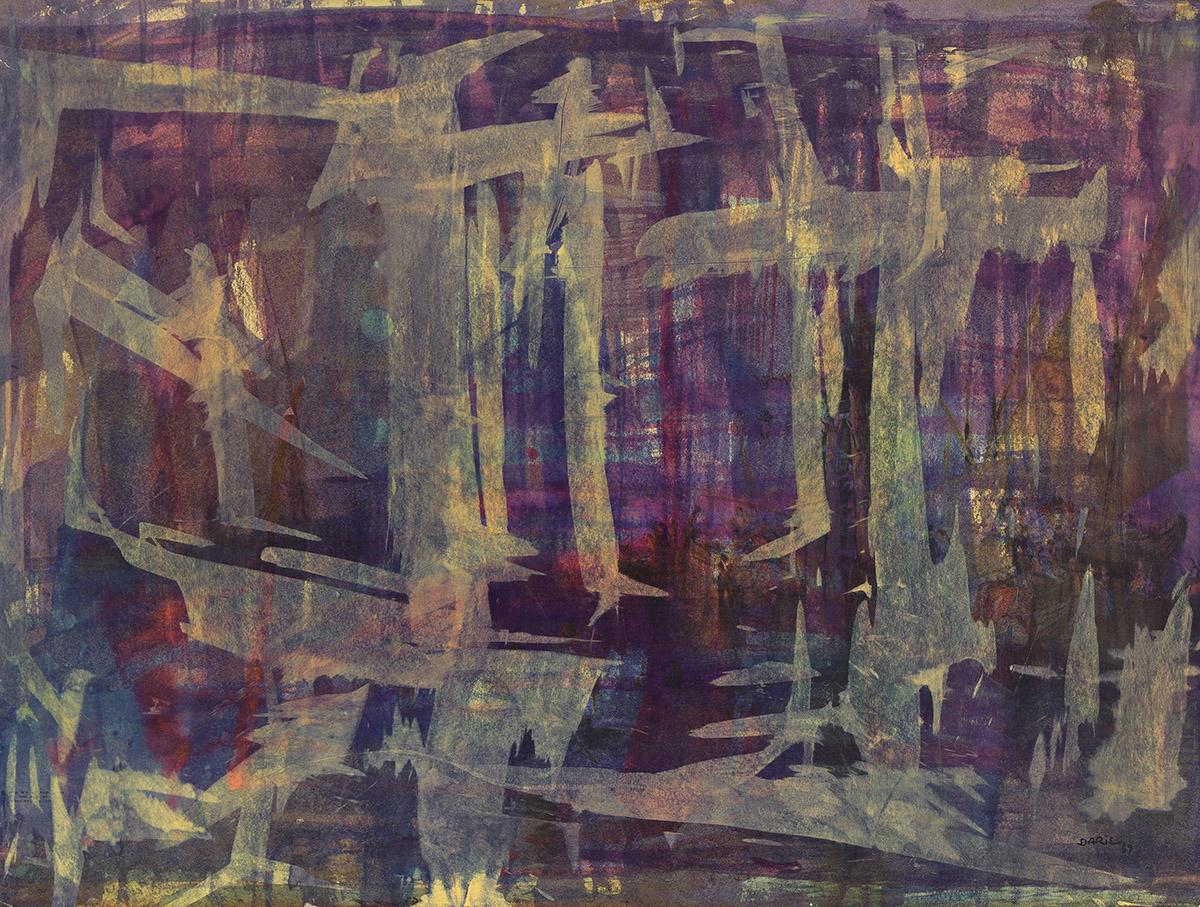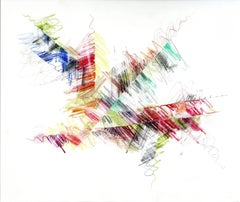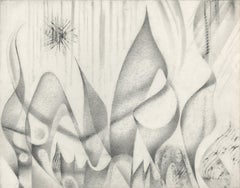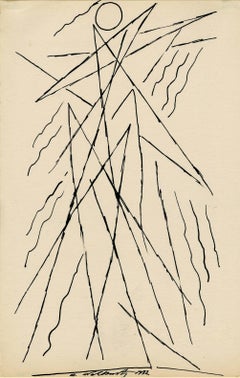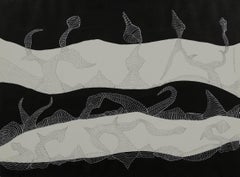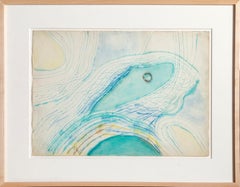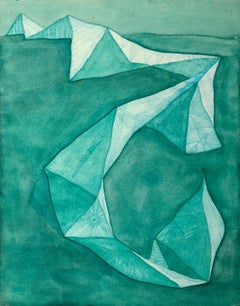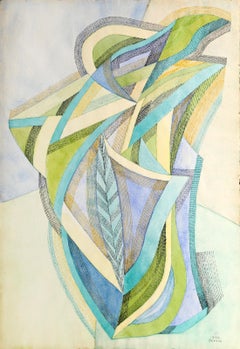Items Similar to Cobwebs and Rocks
Want more images or videos?
Request additional images or videos from the seller
1 of 12
Benjamin G. BennoCobwebs and Rocks
$7,000
£5,328.75
€6,091.89
CA$9,849.09
A$10,773.29
CHF 5,672.43
MX$128,622.10
NOK 72,295.94
SEK 66,133.54
DKK 45,500.19
About the Item
Cobwebs and Rocks
Watercolor, 1940
Signed, dated, and copyrighted lower right
Exhibited: Zimmerli Art Museum, Benjamin Benno: Retrospective Exhibition, 1988
Illustrated: Gustafson, Zimmerli Museum: Benjamin Benno: Retrospective Exhibition, 1988
Color Plate 14 copy copy of the catalog accompanies the watercolor
Condition: excellent
Image size: 14 3/4 x 21 inches
Provenance: Estate of the Artist
Ruth O'Hara, O'Hara Gallery, Fuller Building, NYC
Jem Hom Fine Art, Washington & New York
Benjamin Benno was regarded as a child prodigy. In 1912 his formal training began with Robert Henri and George Bellows in New York. He studied at the progressive Ferrer School known for its emphasis on freethinking and association with the anarchist movement. For eight years he traveled throughout the world painting and gaining confidence in his art.
Financed by collectors, Benno moved to Paris in 1926. He briefly returned to New York in 1931 and upon receiving a Guggenheim Fellowship immediately returned to Paris where he remained until 1939. By the early 1930s he had established a reputation as a member of the international avant-garde and exhibited with the most significant European artists including Paul Klee, Max Ernst, Wassily Kandinsky, Salvador Dalí, Joan Miró, Hans Arp, and Fernand Léger. Pablo Picasso sponsored Benno's first one-man show in Paris in 1934.
With the outbreak of war in 1939, Benno returned to New York along with many artist exiles. In America, his eccentric nature and experimental paintings were received harshly by critics. Enraged by this reception, Benno became bitter and hostile. Galleries and museums were disturbed by his temperament and Benno’s presence in the art world waned.
Benno spent his last years buying back his works and preparing his papers for posterity. The paintings in this exhibition exemplify a man passionately committed to his art and convinced of his place in history.
This exhibition features major works from the 1930s when Benno was living in Paris and regarded as a distinguished member of the cultural avant-garde.During this time, Benno became acutely aware of the Modernists and reflected various avant-garde movements in his work. The principles of Surrealism, Cubism and Constructivisim influenced Benno, yet his strong personality imbued his art with a distinctive quality.
Courtesy Michael Rosenfeld Gallery
- Creator:Benjamin G. Benno (1901-1980, American)
- Dimensions:Height: 14.75 in (37.47 cm)Width: 21 in (53.34 cm)
- Medium:
- Movement & Style:
- Period:
- Condition:
- Gallery Location:Fairlawn, OH
- Reference Number:Seller: FA50141stDibs: LU1408929072
About the Seller
5.0
Recognized Seller
These prestigious sellers are industry leaders and represent the highest echelon for item quality and design.
Gold Seller
Premium sellers maintaining a 4.3+ rating and 24-hour response times
Established in 1978
1stDibs seller since 2013
835 sales on 1stDibs
Typical response time: <1 hour
Associations
International Fine Print Dealers Association
- ShippingRetrieving quote...Shipping from: Fairlawn, OH
- Return Policy
More From This Seller
View AllUntitled
By Peter Marks
Located in Fairlawn, OH
Unsigned
Provenance:
Estate of the artist
Peter Marks (1935 -2010)
Peter Marks was born in New York City on January 18, 1935. A lifetime New Yorker, Marks graduated from the Hig...
Category
21st Century and Contemporary Abstract Abstract Drawings and Watercolors
Materials
Crayon
$450 Sale Price
50% Off
Untitled Abstraction
By Medard P. Klein
Located in Fairlawn, OH
Untitled Abstraction
Graphite on paper, c. 1946
Signed with the estate stamp verso
Provenance: estate of the Artist
Inherited by his neighbor/caregiver
Conditio...
Category
1940s Abstract Abstract Drawings and Watercolors
Materials
Graphite
Abstraction
By Abraham Walkowitz
Located in Fairlawn, OH
Signed and dated in ink lower center
Provenance:
Charlotte Bergman, noted collector and patron of Walkowitz. See photo for additional information.
Category
1930s Modern Abstract Drawings and Watercolors
Materials
Ink, Pen
Sea Forms
By Ray H. French
Located in Fairlawn, OH
Signed and dated center right edge; Annotated "48" lower left
Provenance:
Estate of the artist
One of a suite of 120 drawings that the artist did in 1 month.
Most were sold thro...
Category
1960s Abstract Abstract Drawings and Watercolors
Materials
Ink, Pen
Untitled (Abstraction)
By Charles Harris ( Beni Kosh )
Located in Fairlawn, OH
aka Beni Kosh
Untitled (Abstraction)
Watercolor on paper, 1970's
Unsigned
Ben Kosh Estate Stamp verso, No. 754
Condition: Very good
Sheet size: 10 5/8 x 14 9/16 inches
Provenance: Estate the Artist
Bingham & Vance, Shaker Heights...
Category
1970s Abstract Abstract Drawings and Watercolors
Materials
Watercolor
Untitled Abstraction
By Peter Marks
Located in Fairlawn, OH
Unsigned as per usual
Enamel paint and ink on tracing paper
Provenance:
Estate of the Artist
Peter Marks (1935 -2010)
Peter Marks was born in New York City on January 18, 1935....
Category
Early 2000s Abstract Abstract Drawings and Watercolors
Materials
India Ink
$450 Sale Price
50% Off
You May Also Like
Untitled 7, Colored Ink drawing by Benjamin Benno
By Benjamin G. Benno
Located in Long Island City, NY
The Amazon
Benjamin Benno, American (1901–1980)
Date: circa 1940
Colored ink on paper
Size: 14.75 x 21 in. (37.47 x 53.34 cm)
Frame Size: 22 x 28 inches
Category
1940s Surrealist Abstract Drawings and Watercolors
Materials
Paper, Ink
Mountain Range, Modern Cubist Watercolor by Benjamin Benno
By Benjamin G. Benno
Located in Long Island City, NY
Mountain Range
Benjamin Benno, American (1901–1980)
Date: 1938
Watercolor and ink on paper, signed and dated lower left
Size: 20 x 16 in. (50.8 x 40.64 cm)
Category
1930s Cubist Still-life Drawings and Watercolors
Materials
Paper, Watercolor, Ink
Abstract Composition #1, Modern Cubist Drawing by Benjamin Benno
By Benjamin G. Benno
Located in Long Island City, NY
Benjamin Benno was an British-born American artist, best known for his Cubist and abstract works. This artwork is signed and dated.
Abstract Composition #1
Benjamin Benno, American ...
Category
1940s Cubist Still-life Drawings and Watercolors
Materials
Paper, Watercolor, Permanent Marker
Abstract Drawing
By Jorge Miton
Located in Houston, TX
Abstract ink drawing by Spanish artist Jorge Miton, 2005. Signed lower right.
Original artwork on paper displayed on a white mat with a gold border. Archival plastic sleeve and Ce...
Category
Early 2000s Abstract Drawings and Watercolors
Materials
Ink
Untitled
By Sandu Darie
Located in New York, NY
Watercolor on wove paper. Signed and dated in ink, lower right recto.
Category
1960s Contemporary Abstract Drawings and Watercolors
Materials
Watercolor
Gems of Lost Memories
Located in New York, NY
Friederike Oeser, a contemporary abstract painter, lives and works in Munich, Germany. For Oeser there is no hierarchy of visual value. It all has import—whether it be a trickle of w...
Category
2010s Abstract Abstract Drawings and Watercolors
Materials
Oil Pastel
$3,192 Sale Price
20% Off
More Ways To Browse
Abstract Painting Rocks
Original Etching
Black And White Photograph Of New York
Large Black And White Print
Vintage Celebrities
New York Times
Vintage Wife
Used Victoria
19th Century Painting On Canvas
Street Photography
Antique Fine Art
Art Of Chicago
1969 Painting
Student Art
Print Series
Oil Paintings 19th Century
Framed Portrait Painting
Metropolitan Museum Of Art
